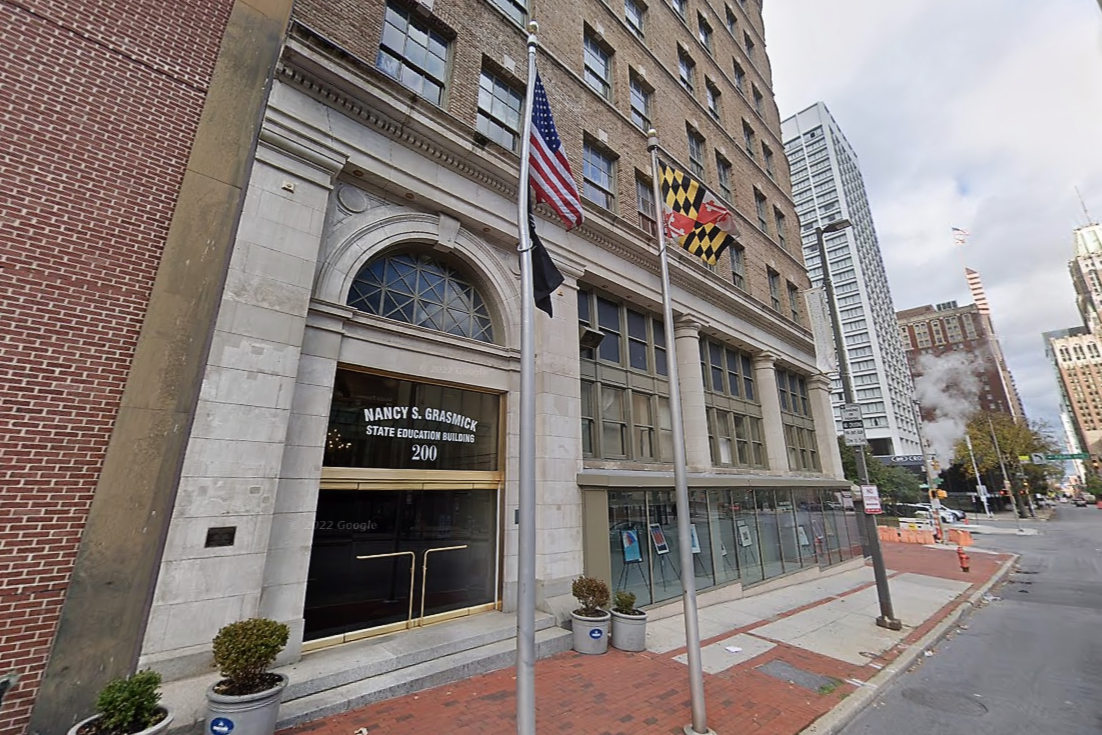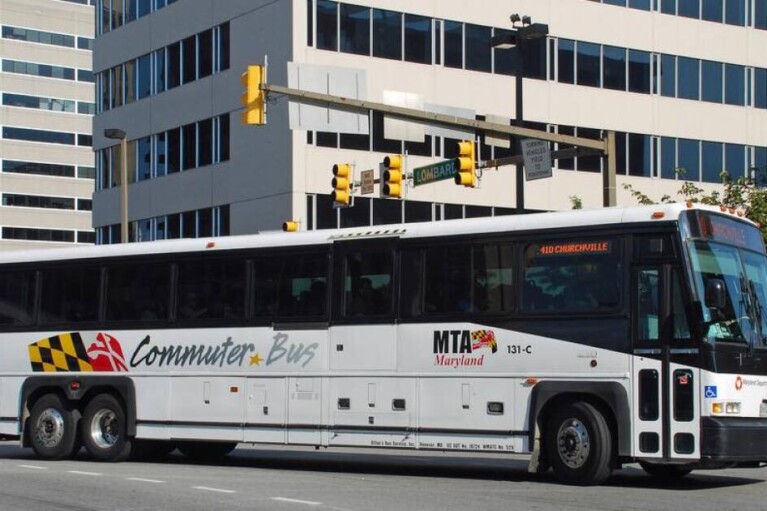Kalman Hettleman: State superintendent’s leadership is under fire as criticisms and rifts surface

For several weeks I have been researching a commentary, working title, “Should state schools superintendent Mohammed Choudhury stay or go?”
And in a submission I sent in this week, I attempted a balanced analysis of his controversial two years in office. He (by July 1) and the State Board of Education (by no later than around September 30) must declare whether they are interested in renewing his contract, which expires in June 2024.

State Superintendent of Schools Mohammed Choudhury. Maryland State Department of Education photo.
But yesterday there was stunning news that appears to require that he go, not stay. One of the concerns about him that I described was “growing tension” between Mr. Choudhury and the governing Blueprint Accountability and Implementation Board. Now, just hours ago, out of the blue, came a strong statement from Isiah Leggett, chair of the AIB, describing a major rift over approval of local school district’s initial plans for implementing school reform policies.
Mr. Leggett wrote, in a statement to local school districts, that “The AIB has made every effort to work with MSDE and Superintendent Choudhury to develop a joint process that was acceptable” for review of Blueprint implementation plans. “However,” he concluded, “in the end, the Superintendent decided that MSDE should follow an independent process.”
The result means that school systems will probably receive confusing or conflicting feedback on their implementation plans from both the State Department of Education and the Accountability and Implementation Board.
An independent MSDE process is simply unworkable if not illegal. As Mr. Leggett pointed out, “to the extent that a conflict exists, the law clearly states that AIB is responsible for approving Blueprint implementation plans.” Yet, MSDE still has to do the daily guidance and monitoring of local school districts, so the breach, unless healed, dooms effective implementation of the Blueprint reforms.
Since Mr. Choudhury became superintendent, I have spoken to literally hundreds of people — inside and outside the State Department of Education — who have interacted with him (as I have personally). In researching this article, I sought further comment from about 25 people.
My examination of Mr. Choudhury’s performance had, before today’s news, two main parts: one, his strengths and accomplishments; the other, criticisms and concerns. They’re still relevant as the state board, as well as the AIB and the governor, consider whether his contract should be renewed.
Many factors are in play. A threshold barrier is virtual unanimity that his personal style impedes his working relationships with MSDE staff, local school districts, elected officials and advocates. This so dominates discussions about him that objective judgments about his productivity and accomplishments are harder to reach.
There are other mitigating factors. He has been on the job for only two years and has had to deal with the pandemic. Even more imposing, he inherited the mammoth Blueprint with its massive fixed priorities and implementation challenges.
I try to fully consider these factors in the analyses that follow.
Strengths and accomplishments
There is universal agreement that Mr. Choudhury is hard-working, smart, data-driven at warp speed, and passionately devoted to equity. Almost every statement or document associated with him highlights the needs of disadvantaged students who are poor and of color.
He has earned credit for development of a new way to measure poverty that would substantially boost funding to urban and rural areas with concentrated poverty.
He personally chaired the Workgroup on English Learners in Public Schools whose report and recommendations were widely acclaimed. He has strongly advocated for English Learners and dual language immersion programs.
His relationship with the Maryland State Education Association (the state’s largest teachers union) seems on good footing. He has supported higher compensation for teachers and education support personnel.
He garnered plaudits from special education advocates for his support of restrictions on restraint and seclusion of students with disabilities.
His signature project so far is the Maryland Leads Initiative which has gained national recognition. About $150 million in discretionary COVID funds were distributed last year to the 24 local school districts for a limited number of “high-leverage” strategies; bonus grants were available for “science of reading” and “grow your own staff” applications.
In an attempt to do justice to his record, I asked MSDE for a listing of his accomplishments and an interview with him for this article. I received an acknowledgement but no further response.
Criticisms and concerns
These fall into two large categories: outputs and relationships. In both arenas, the overwhelming consensus is that, given his strengths and potential, he has been a disappointment.
Outputs
Despite commendable outreach — many meetings, school visits and surveys — and innumerable deep dives into data, he has still not fished up actionable plans for MSDE priorities.
He has been engaged since November 2021 in the development of a “Strategic Plan.” But the identification of “flagship programs, initiatives, and strategies” is not expected until June, and it is not clear whether specific tasks, timelines, and accountability measures will be forthcoming. It is highly unusual for a reform-minded superintendent to take so long to spell out prioritized workplans.
This is especially evident in the absence of comprehensive plans for instruction in literacy and math and interventions for struggling learners. He trails counterparts in other states. In fact, he abandoned promising work on literacy that preceded him at MSDE.
Special education is also mired in inaction since Mr. Choudhury took office. The highly regarded assistant state superintendent for special education voluntarily left her post and hasn’t publicly given a reason. Currently, Mr. Choudhury is resisting, after originally opposing, the Blueprint Accountability and Implementation Board’s directive calling on MSDE to create a Special Education Workgroup along the lines of the English Language Learners Workgroup that he chaired.
In other large policy areas — among them early childhood and community schools — there is similar criticism about MSDE’s lack of support and engagement.
Relationships
Criticisms of his interactions with others is almost invariably the first subject that comes up in appraisals of Mr. Choudhury’s performance. Former and current MSDE staff describe terrible morale because of his failure to listen and communicate, disparagement of staff, and reliance on a tiny inner circle.
All staff I’ve contacted speak off the record because of fear of retaliation, except for a former mid-level employee who quit and sent a letter — joined by nine others — to state officials outlining concerns earlier this year. The employees decried a “pattern of verbal bashing and diminishing others” and micro-management that has led to a drove of vacancies and left MSDE “unprepared” to implement the Blueprint.
The vacancies have included the departure of two of Mr. Choudhury’s top assistants who he had personally recruited. Vacancies throughout MSDE are often given as a reason for bottlenecked decision-making.
In Annapolis, lawmakers offered a rash of “no comments” or declined to speak on the record.
And now towering above these concerns is the major rift with the AIB highlighted earlier. Tensions between the AIB and Mr. Choudhury have been growing so it was no surprise except for the severity and openness of the breach.
Similarly, tensions have also surfaced with local superintendents and local school boards. The president of the state board met recently with representatives of both groups and heard a litany of complaints about their working relationships with MSDE.
Summing up and moving forward
At this point, it seems unavoidable that Mr. Choudhury must go, although his departure and the search for a replacement will take time. School reform of the magnitude of the Blueprint is an uphill struggle under any circumstances. When its chief steward fails to build trust and collaboration, leadership is missing and school reform cannot succeed.
The AIB, as well as the state board, must investigate the current situation and weigh the superintendent’s suitability. Gov. Wes Moore (D) will also play a pivotal role, including his power on July 1 to appoint three new State Board of Education members (in addition to the three he’s already appointed).
I originally wrote that if Mr. Choudhury and the state board choose contract renewal, some form of personal improvement plan should be required. It should span building relationships, transparency, responsiveness, priority work plans with outcome measures, and at least bi-monthly public reports. But that now seems a longshot.
All told, the contract renewal will determine who leads Maryland schools over the next five years and whether the Blueprint sinks or swims. A new leader is urgently needed.




 Creative Commons Attribution
Creative Commons Attribution